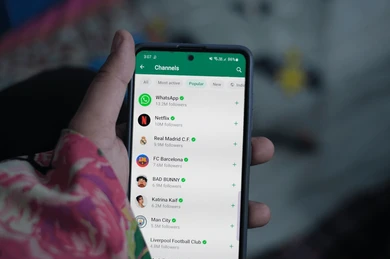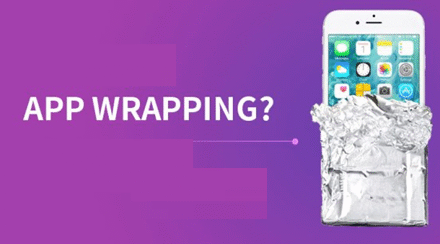Today, WhatsApp has become a crucial tool for businesses to connect with their audience. According to studies, WhatsApp is expected to nearly reach three billion unique active users worldwide by June 2024, marking a seven percent increase compared to June 2023.
With WhatsApp OTP launched in both India and Indonesia now, the platform is set to give competition to SMS OTP verification, RCS for both marketing and transactional use cases.
Steps to Target the Right Audience for WhatsApp Broadcast
1. Build a Qualified Contact List
The cornerstone of a successful broadcast is a well-curated contact list. Here’s how to build it:
a. Opt-In Strategy
- Consent Collection: Ensure you have explicit consent from your contacts to send them promotional messages. A WhatsApp Broadcast Example is the online survey. Other things include sign-up forms on your website, or direct requests via other communication channels. Consent is crucial to comply with regulations such as GDPR and to build trust with your audience.
- Clear Value Proposition: Explain the benefits of subscribing to your broadcasts. Offer incentives like exclusive content, discounts, or early access to sales. Clearly communicate the type of messages they will receive and the frequency.
b. Segmentation
- Demographic Segmentation: Categorize your contacts based on age, gender, location, and other demographic factors. Understanding the basic demographics of your audience helps tailor messages to their specific needs and preferences.
- Behavioral Segmentation: Group contacts by their purchasing behavior, engagement level, and interaction history with your brand. This allows you to send targeted messages that resonate with their interests and purchasing patterns.
- Psychographic Segmentation: Consider the interests, lifestyle, and values of your audience. Psychographic data provides deeper insights into what motivates your audience, enabling you to create more compelling and relevant content.
2. Use CRM Integration
Integrating WhatsApp with your Customer Relationship Management (CRM) system allows you to manage and segment your contacts efficiently. With CRM, you can:
- Track customer interactions and preferences, providing a comprehensive view of each contact.
- Automate the addition of new contacts from various touchpoints such as your website, social media, and offline events.
- Segment your audience based on detailed data, ensuring that each broadcast is relevant to the recipients.
CRM integration not only streamlines the management of your contact list but also enhances your ability to deliver personalized and timely messages.
3. Personalize Your Messages
Generic messages are often ignored. Personalization increases engagement and makes your audience feel valued. Personalize your broadcasts by:
- Using the Recipient’s Name: Addressing your contacts by their first name makes the message feel more personal and less like mass marketing.
- Referring to Past Interactions or Purchases: Mentioning previous purchases or interactions shows that you remember and value your customers, fostering a sense of loyalty.
- Tailoring Content to Match Interests and Preferences: Use the data gathered through segmentation to send content that aligns with the interests and preferences of your audience.
4. Create Valuable Content
To keep your audience engaged, ensure your messages offer value. This could be:
- Informative Content: Share industry news, tips, tutorials, and how-to guides that can help your audience solve problems or learn something new.
- Promotional Content: Offer exclusive deals, discounts, and early-bird access to sales or events. Make sure these offers are genuine and provide real value to your audience.
- Interactive Content: Encourage engagement through surveys, polls, and feedback requests. This not only keeps your audience involved but also provides you with valuable insights into their preferences and opinions.
5. Optimal Timing and Frequency
The timing and frequency of your messages play a crucial role in engagement when it comes to WhatsApp Marketing Strategies. Consider the following:
- Timing: Send messages at times when your audience is most likely to be active. For instance, evenings or weekends might be more effective for working professionals, while mid-morning might be better for stay-at-home parents or retirees.
- Frequency: Avoid overwhelming your contacts with too many messages. Stick to a consistent but moderate frequency, such as once a week or bi-weekly, depending on your audience’s preferences and the nature of your content.
6. Monitor and Analyze Performance
Track the performance of your broadcast campaigns to understand what works best. Key metrics to monitor include:
- Open Rates: The percentage of recipients who opened your message. High open rates indicate that your audience is interested in your content.
- Engagement Rates: Responses, clicks on links, and other interactions. Engagement rates help you gauge how effectively your messages are resonating with your audience.
- Unsubscribe Rates: Monitor how many people opt-out of your broadcasts. A high unsubscribe rate could indicate that your content or frequency needs adjustment.
Conclusion
Effectively targeting the right people for your WhatsApp broadcast can significantly enhance your marketing efforts, leading to higher engagement and better customer relationships.
By building a qualified contact list, utilizing CRM integration, personalizing your messages, creating valuable content, timing your messages well, monitoring performance, and iterating based on feedback, you can optimize your WhatsApp marketing strategy for success.
Remember, the key is to keep your audience’s needs and preferences at the forefront of your strategy. By doing so, you can leverage the full potential of WhatsApp to create meaningful connections with your customers and drive your business forward.





